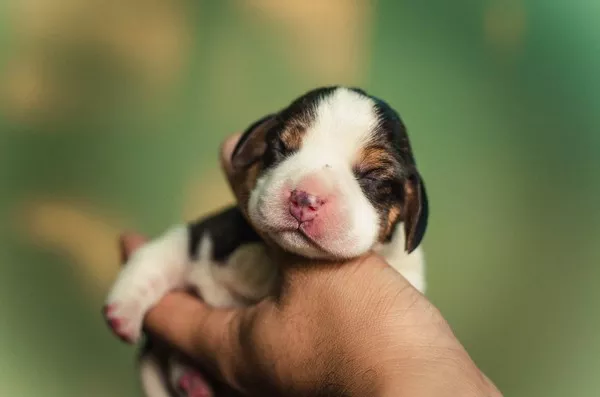Holland Lop rabbits, known for their floppy ears and charming personalities, are among the most popular breeds in the pet rabbit world. With their gentle demeanor and sociable nature, they make wonderful companions for families and individuals alike. However, caring for a Holland Lop goes beyond simply providing shelter and affection; one of the most critical aspects of their care involves understanding their dietary needs.
Feeding a Holland Lop rabbit properly is crucial for their health, longevity, and happiness. This article delves into the essential dietary requirements of Holland Lops, including their natural feeding habits, the right types of food to offer, and how to maintain a balanced diet that meets their nutritional needs.
Understanding the Natural Diet of Rabbits
Before discussing what to feed a Holland Lop, it’s important to understand the natural diet of rabbits in general. In the wild, rabbits are herbivores and primarily graze on grasses, herbs, and leafy greens. Their digestive systems are specifically adapted to process high-fiber diets, which are essential for their gut health.
Natural Feeding Habits
Grazing:
Wild rabbits spend a significant portion of their day foraging for food, often consuming a variety of grasses and plants. This grazing behavior not only provides nutrition but also helps to keep their teeth naturally worn down.
High Fiber Intake:
Rabbits’ digestive systems are designed for high-fiber diets. Fiber helps in the movement of food through the intestines, preventing gastrointestinal stasis, a common and potentially fatal condition in rabbits.
Water Needs:
In the wild, rabbits obtain much of their water from the plants they eat. However, they still require fresh, clean water available at all times. Dehydration can lead to severe health issues.
Wild vs. Domestic Diet
While the basic principles of a rabbit’s diet remain the same between wild and domestic settings, domestic rabbits like Holland Lops have specific needs that can vary based on their living conditions, age, and health status.
Nutritional Requirements for Holland Lops
Holland Lops, like all domestic rabbits, have specific nutritional requirements that must be met to ensure their health and well-being. These include:
Fiber:
Fiber is crucial for digestive health. It should make up the majority of a rabbit’s diet, with a minimum of 20-25% fiber content recommended.
Protein:
Protein is necessary for growth and maintenance, especially in young rabbits. Adult rabbits require less protein than young ones, with a recommended intake of about 12-16%.
Fat:
Rabbits have low-fat requirements. A diet too high in fat can lead to obesity and related health problems.
Vitamins and Minerals:
Essential vitamins (like Vitamin A) and minerals (such as calcium) must be included in a balanced diet. However, care must be taken not to over-supplement, especially with calcium, as this can lead to urinary problems.
Water:
Fresh water should be available at all times. Rabbits can drink quite a bit daily, typically around 100-150 ml per kg of body weight.
The Building Blocks of a Holland Lop’s Diet
To create a balanced diet for a Holland Lop, it’s important to incorporate a variety of foods that together meet their nutritional requirements. Here are the main components of a healthy rabbit diet:
1. Hay: The Foundation of Their Diet
Hay is the cornerstone of a rabbit’s diet, particularly timothy hay, meadow hay, or orchard grass hay. Here’s why hay is so important:
High Fiber Content: Hay is rich in fiber, which is crucial for healthy digestion. It helps keep the gastrointestinal tract functioning properly.
Dental Health: Chewing hay helps wear down rabbits’ continually growing teeth, preventing dental problems.
Variety: Offering different types of hay can help keep your rabbit interested in their diet.
Types of Hay
Timothy Hay: This is the most common type of hay for rabbits and is available in various cuts (first, second, and third). Second-cut timothy is softer and leafier, while first cut is more fibrous.
Meadow Hay: Contains a mix of grasses and plants, providing variety and nutrition.
Orchard Grass Hay: A softer hay option, great for young or older rabbits with sensitive teeth.
Alfalfa Hay: High in protein and calcium, alfalfa hay is best reserved for young, growing rabbits or those needing extra calories due to health issues.
2. Fresh Vegetables
Fresh vegetables add essential vitamins and minerals to a rabbit’s diet. They should be introduced gradually to avoid digestive upset. Here are some recommended vegetables:
Leafy Greens:
- Romaine lettuce
- Kale
- Swiss chard
- Mustard greens
- Bok choy
Other Vegetables:
- Carrots (in moderation, due to high sugar content)
- Bell peppers
- Broccoli (leaves and stalks)
- Cucumber
- Zucchini
Caution: Some vegetables are toxic to rabbits, such as potatoes, onions, and garlic. Always research new foods before introducing them.
3. Commercial Pellets
Pellets can provide balanced nutrition, but they should be given in moderation. Look for high-quality rabbit pellets that contain:
Timothy or hay-based pellets: Avoid those with added seeds or dried fruits, as these can be high in sugar and fat.
Low Protein Content: Pellets with about 12-16% protein are ideal for adult rabbits. Young rabbits may require higher protein pellets until they are six months old.
4. Fresh Fruits (Treats)
Fruits should only be offered in small quantities due to their high sugar content. They can be a delightful treat for your Holland Lop. Some safe options include:
- Apples (remove the seeds)
- Blueberries
- Strawberries
- Bananas (in small amounts)
- Pineapple
5. Treats and Chew Toys
While not a primary part of the diet, chew toys can play a role in dental health. Safe options include:
- Wooden chew toys
- Cardboard (avoid colored or glossy cardboard)
- Untreated willow or apple branches
Feeding Schedule and Portion Control
Feeding your Holland Lop involves more than just knowing what to give them; you also need to consider how much and how often. Here’s a guideline for a feeding schedule:
Daily Feeding Routine
Hay:
Unlimited access to hay should be provided at all times. Ensure it is fresh and free from mold or dust.
Pellets:
Offer about 1/4 cup of high-quality pellets per 5 lbs of body weight for adult rabbits. Adjust this quantity for young rabbits, as they may need more.
Fresh Vegetables:
Provide a variety of fresh greens daily, about 1-2 cups per 5 lbs of body weight. Introduce new vegetables gradually.
Fruits:
Limit fruits to 1-2 tablespoons per 5 lbs of body weight, offered a few times a week as treats.
Monitoring Portion Sizes
Keep an eye on your Holland Lop’s body condition and adjust their food intake as necessary. Rabbits should have a slim but well-rounded appearance. Overweight rabbits may require adjustments to their diet and increased exercise.
Special Dietary Considerations
1. Age-Related Needs
Babies (0-6 months): Young rabbits need a diet higher in protein and calcium. They can be fed alfalfa hay, specially formulated pellets for young rabbits, and gradually introduced to fresh vegetables.
Adults (6 months – 5 years): An adult Holland Lop’s diet should focus on high-fiber hay, moderate pellets, and plenty of fresh greens.
Seniors (5+ years): Older rabbits may require softer hay and easier-to-chew vegetables. Regular veterinary check-ups are essential to address any health concerns that arise with age.
2. Health Issues
If your Holland Lop has specific health concerns, their diet may need to be adjusted accordingly:
Obesity: Reduce pellets and high-calorie treats, and increase hay and vegetables.
Dental Problems: Softer foods like orchard grass hay or steamed vegetables may be necessary.
Gastrointestinal Issues: A diet rich in fiber is crucial, focusing on unlimited hay and greens while minimizing pellets and treats.
3. Hydration
Always provide fresh, clean water. Some rabbits prefer drinking from a bowl, while others might like a water bottle. Monitor their water intake and ensure they are drinking enough, especially in hot weather or if they are eating dry foods.
Signs of a Healthy Diet
A well-fed Holland Lop will display the following signs:
Healthy Coat: Shiny, soft fur indicates good nutrition.
Active Behavior: A healthy rabbit is usually active and curious.
Regular Droppings: Firm, round droppings indicate a balanced diet and healthy digestion.
Normal Weight: Maintain a healthy body condition; ribs should be palpable but not visible.
Common Feeding Mistakes to Avoid
Overfeeding Pellets: Many rabbit owners make the mistake of relying too heavily on pellets. While they can be part of the diet, they should not be the primary food source.
Ignoring Fiber: Failing to provide adequate fiber can lead to serious digestive issues. Always prioritize hay.
Feeding Too Many Treats: Fruits and other treats should only be given in moderation. Too many sugary foods can lead to obesity and health problems.
Sudden Diet Changes: Rabbits’ digestive systems are sensitive. Introduce new foods gradually to avoid gastrointestinal upset.
Neglecting Water Needs: Always ensure that your rabbit has access to fresh water. Dehydration can quickly lead to health issues.
Conclusion
Feeding a Holland Lop rabbit is an essential aspect of responsible pet ownership. By understanding their natural diet and nutritional requirements, you can provide a well-balanced diet that promotes their health and happiness.
The foundation of their diet should be high-quality hay, complemented by fresh vegetables, moderate pellets, and the occasional treat. Regular monitoring of their diet, along with attention to age-related and health considerations, will help ensure your Holland Lop thrives in your care.
As with any pet, consulting with a veterinarian familiar with rabbits is crucial to tailor your Holland Lop’s diet to their individual needs. With proper care and a balanced diet, your Holland Lop can lead a healthy and happy life, bringing joy to your home for many years.
Related Topics:


























